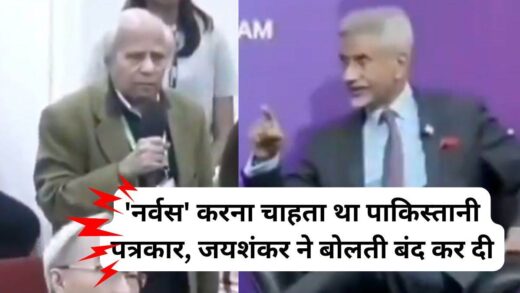The fate of Google’s search business is now in the hands of Judge Amit Mehta, as closing arguments concluded in the landmark trial on Friday.
The Department of Justice and plaintiff states made their last arguments Thursday on Google’s alleged anticompetitive conduct in the general search market, and on Friday focused on its allegedly illegal conduct in search advertising. Google was also under fire (separately) for failing to retain chat messages that the DOJ believes could have been relevant to the case.
The government is trying to show that Google locked up key distribution channels for the general search engine market, so that would-be rivals could not grow into significant threats. It says it did so through contracts with phone manufacturers and browser companies to be their exclusive default search engine. If the judge agrees that Google successfully foreclosed competition in that market, he can consider the government’s arguments about the search advertising market as evidence of anticompetitive conduct.
In his summary, DOJ attorney Kenneth Dintzer said that the last major tech monopoly decision, US v. Microsoft, “fits like a glove” on Google. Google’s lead litigator in the case, John Schmidtlein, disagreed. In Microsoft, he said, manufacturers were coerced into deals and customers were spoon-fed an inferior product they didn’t want. “Google has won with a superior product,” he said.
“The importance and significance of this case is not lost on me,” Mehta said as he concluded Friday’s court proceedings. “Not only for Google, but for the public.”
An adequate substitute for Google ads
If Google charges higher prices for advertising, are there suitable substitutes that advertisers would flee to? The answer to that question can say a lot about whether or not Google has the monopoly power that the DOJ alleges it has created through the contracts it has to be the default search engine on various browsers and devices. Google says there’s plenty of alternatives for advertisers; the government disagrees.
Mehta seemed sympathetic to the government’s arguments, though he acknowledged that alternatives to Google are robust ad companies in their own right. Amazon, for instance, isn’t exactly an inferior substitute to Google for ads, said Mehta. Unlike wrapping a sandwich in newspaper instead of cellophane, Mehta said, “If you move your ad money from Google to Amazon, you’re not wrapping your ad in newspaper.”
But Mehta later differentiated ad platforms like Facebook and TikTok from Google. Users searching on Google come with a strong idea of what they’re looking for, pretty much spelling it out in the query. Social media platforms often have to infer that intent from indirect signals.
In 2017, Google ran an experiment over several weeks and found it could increase prices five to 15 percent while still growing revenue
In 2017, Google ran an experiment over several weeks and found it could increase prices five to 15 percent while still growing revenue. “Google is able to decide on what the margin that they are going to acquire is. And that’s why they’re running experiments to say, ‘well if we up it by 15 percent, how much are we going to lose in revenue?’” Mehta said to Schmidtlein. “That’s something that only a monopolist could do, right?” Schmidtlein disagreed, saying it’s fair to run pricing experiments to figure out if they’re charging the right price.
Mehta pointed out that there was “no evidence that Google ever looks at a competitors’ pricing” for that purpose. Schmidtlein responded it wasn’t that simple. Because ads are sold through a complicated auction, not even Google has total insight into the pricing mechanism behind it. It simply isn’t the same as a Coca-Cola rep walking through a grocery store to see Pepsi’s prices.
Sabotaging ads on Bing
The plaintiff states — the attorneys general for 38 states led by Colorado and Nebraska that brought the suit alongside the DOJ — are also arguing that Google intentionally dragged its feet when building certain features for SA360, its search engine marketing tool. SA360 helps advertisers manage ads through different platforms — not just Google, but competitors like Microsoft’s Bing.
The states say that Google lagged behind in building a SA360 feature for Bing ads when it had already implemented it for Google search ads.
“The evidence here is a little bit tricky for Google,” Mehta said, noting the significance of Google having said rather publicly at the start that it was “not going to play favorites” when it came to SA360. While Google could have chosen to exclude Microsoft from the tool at the outset, “that’s not the choice they made,” Mehta said.
The tool was not delivered for nearly five years after Microsoft asked for it. “How can that not be at least inferred to be anticompetitive?” Mehta asked.
Deleted chats
Hanging over the whole case is an issue about whether Google intentionally deleted or failed to retain documents that might have been used as evidence in this trial.
Google had a policy of having “history off” on its chats by default, leaving it to employees to determine when to turn it on for relevant conversations. DOJ’s Dintzer called the alleged destruction of documents “unequivocal and honestly breathtaking.” He added that “there’s no question” executives “intentionally had conversations with history off.”
“Google’s retention policy leaves a lot to be desired,” said the judge, adding disapprovingly that it was “surprising to me that a company would leave it to their employees to decide when to preserve documents.”
“Google’s retention policy leaves a lot to be desired”
Soon after, Dintzer’s slide deck paused on a slide that simply read “This is Wrong,” as the DOJ attorney pointed out Google never apologized for the unretained documents nor promised not to do it again in the future. He said it’s imperative that the court impose sanctions that show the risk of destroying documents is not worthwhile. The DOJ is asking Mehta to make an adverse inference about Google for any element of the case where he doesn’t think plaintiffs have sufficient evidence. That would mean the judge would assume that any deleted chats would have been bad for Google and showed their anticompetitive intent behind their contracts with manufacturers and browsers. The DOJ also wants Mehta to take the destroyed chats as a signal of its anticompetitive intent.
Google attorney Colette Connor said the company’s lawyers had informed the state of Texas (one of the plaintiffs) early on about their retention policies. Dintzer said even that disclosure came months after the litigation hold and that the DOJ “clearly” would have acted had they known.
Mehta didn’t seem to buy Google’s defense. “It’s interesting to me that Google has been very deliberate — and perhaps after seeing what’s happened with Microsoft – very deliberate in advising employees in what not to say,” he said. In a training for employees, the company advised avoiding terms like “market share.” (Bloomberg Law has noted this is a common practice in large companies.)
It’s now up to Mehta to decide how those absent chats should be accounted for. He hasn’t provided a timeline for his decision, but in the meantime, Google and the DOJ will be preparing for their second antitrust face-off over advertising technology in the fall.
#Googles #antitrust #trial #wraps #DOJ #seeks #sanctions #missing #messages
Source link


















